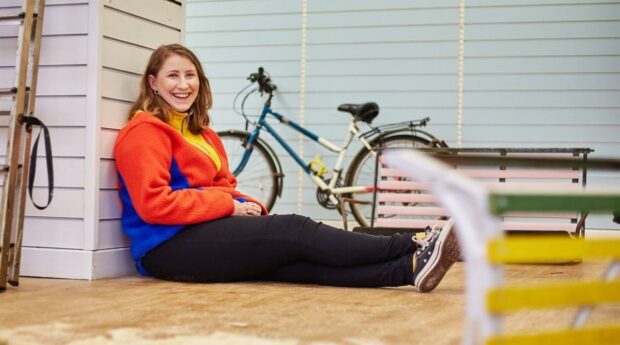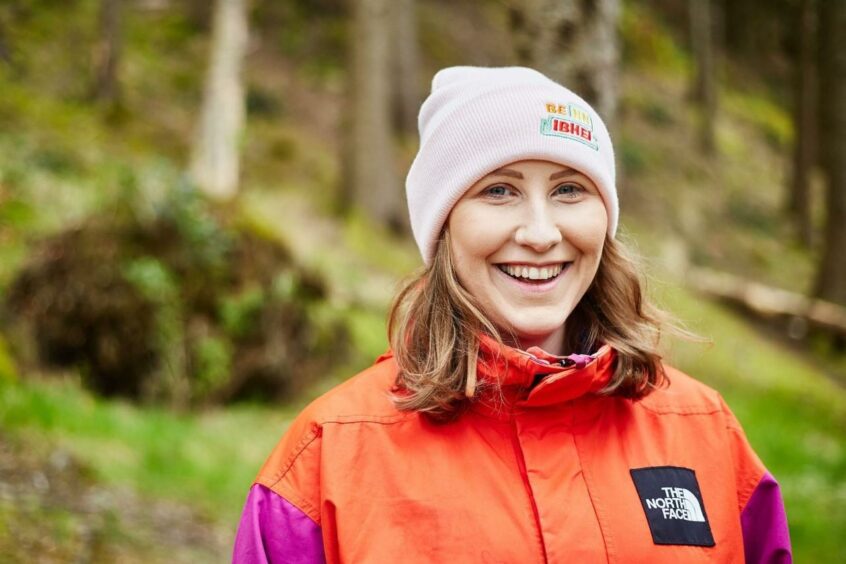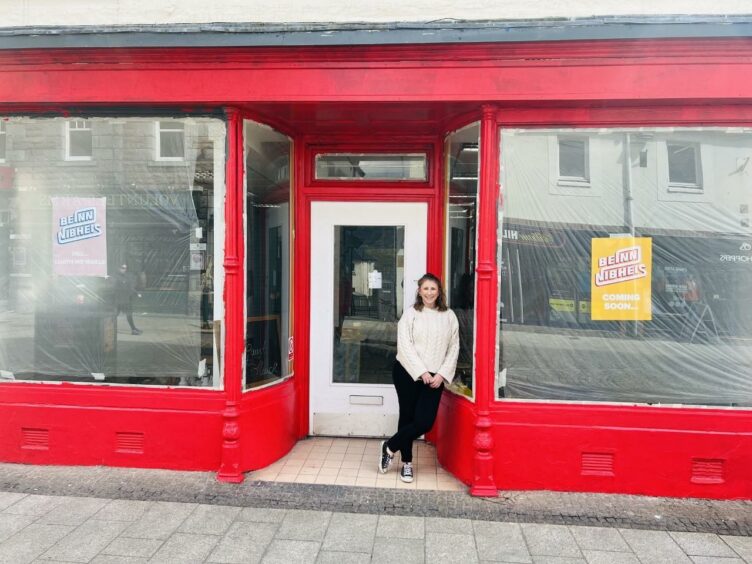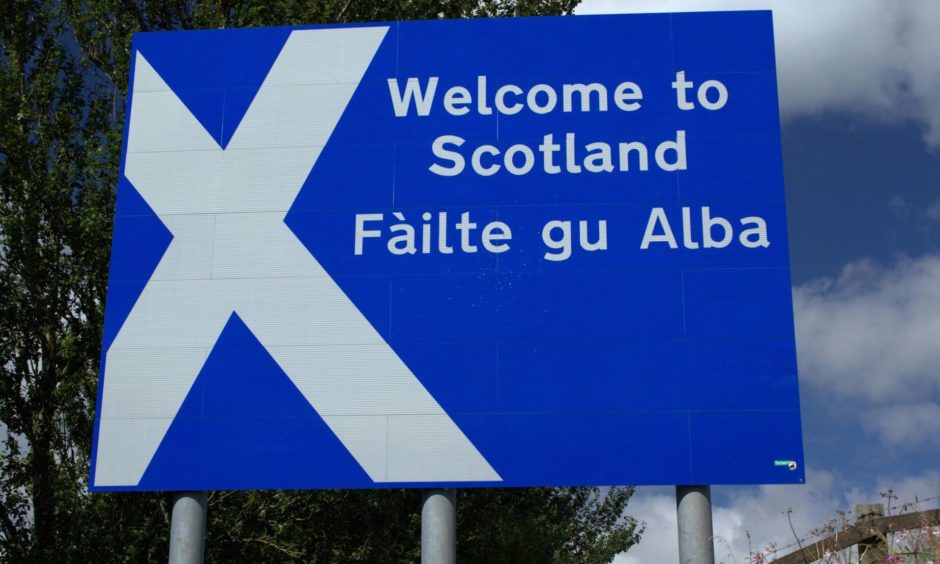Outdoor sports retailer Beinn Nibheis (Ben Nevis) is looking to add a touch of Gaelic to its first shop.
Royal Bank of Scotland (RBS) funding will see the Fort William store open this month.
The £47,500 backing – made available through RBS’ Ask for More initiative, aimed at supporting women in business – will allow Beinn Nibheis to stock sports brands specifically tailored to women.
This is something which owner Eilidh Sykes has identified as a significant gap in the market.
The Ask for More campaign was developed as a result of a survey commissioned by the bank in 2020, revealing concerns and specific challenges faced by women entrepreneurs in Scotland.
It builds on findings of the Rose Review, which showed on average, female-led start-up businesses launch with half the capital of male-led equivalents.
If the rates of women-led businesses equalled that of men, the contribution to Scotland’s economy would increase to £13 billion, according to RBS.
The bank’s cash will cover start-up costs, stock purchases, a lease deposit and shop fittings.
The store, on the corner of Cameron Square, offers mainly women-owned brands and advice for women, beginners and pros with an interest in outdoor pursuits.
RBS described people in the Highlands & Islands as “possibly some of the most entrepreneurial in Scotland,” with many juggling a number of small businesses alongside their professional roles and other jobs in the community, namely crofting, small-scale farming and voluntary positions such as firefighters and lifeboat crew.
Plans for second Beinn Nibheis shop in Aviemore
Ms Sykes, 27, also has ambitions to open a second location, in Aviemore, “as quickly as possible”.
Her plans for it would see her manufacturing and stocking her own range of outdoor clothing aimed at women.
“Flick through any catalogue – around 70% is for men, she told The Press and Journal, adding: “Women tend to be about 30%.
“Even the women’s stuff tends to be a version of things made for men.
“The reason there is less outdoor wear for women is companies are male-owned.
“Men are picking clothing and making decisions. The rise of Instagram broke down that myth a lot – there are a lot more women on Instagram uploading their outdoor activities.
“What we really want to do is pick out a range tailored for women. We are already making a small line of fleeces designed for women – that comes under the funding RBS is giving us.”
Beinn Nibheis has also been nominated for entreprenurial funding scheme Young Edge, backed by the Scottish Government, Scottish Enterprise, RBS, the Hunter Foundation and private donors.
Young Edge is part of Scottish Edge, a competition which takes place twice a year and so far has awarded £15 million to 395 early-stage businesses.
Ms Sykes is also part of Impact 30, a young entrepreneurship programme run by Highlands and Islands Enterprise (HIE).
Highland housing an issue for staff
Beinn Nibheis, featuring brands such as Montane, Mammet and Eivy, which is women-owned, will take on two part-time staff in the Fort William store.
“We would like to recruit local sports enthusiasts to the area,” Ms Sykes said.
She added: “Our designer is not based here because she simply can’t get a house. It’s a problem – it’s terrible. I hope the fact we have jobs will encourage people to stay in the area.
“Part of why I started up was because I wanted to stay in the area and make work for myself so I could afford a house.
“It is very important we encourage women to get involved with entrepreneurship in the Highlands.”
Ms Sykes is fluent in Gaelic and wants to bring a linguistic flavour of the ancient Scottish language to her business. Her RBS relationship manager, Mairi Macdonald, is also a Gaelic speaker.
“It felt very personal as Gaelic culture is something I’m keen to champion through my business,” Ms Sykes said, adding: “RBS were very enthusiastic – my relationship manager spoke Gaelic and we did the whole process through Gaelic, which is amazing.”
Beinn Nibheis wants to make the language a “fundamental part of the brand” and is highlighting its growing popularity with young people in particular.
Ms Sykes added: “People want a genuine cultural experience. If you go to France, you want to engage with the culture.
“What would Paris be if there was no French anywhere? Our idea will be using Gaelic as far as we can.”
Increase in young people speaking Gaelic
According to Scotland’s 2011 census , 57,000 people said they could speak Gaelic.
This was a fall from 59,000 in the 2001 census, while 23,000 people said they could understand Gaelic, but not read, write or speak it.
Council areas with the most Gaelic speakers in 2011 were:
- Western Isles – 52.3%.
- Highland – 5.4%.
- Argyll and Bute – 4%.
These were also the areas where people most commonly spoke Gaelic at home. Overall, 0.5% of adults in Scotland said they spoke Gaelic in their own homes.
The census recorded a very modest increase, but a rise nonetheless, of one-tenth of a percentage point in people less than 20 years old able to speak Gaelic – backing up Ms Sykes’ view of the language gaining popularity among youngsters.




Conversation